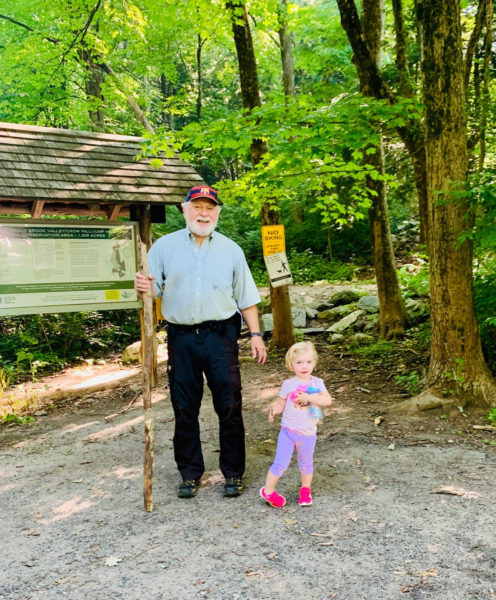My name is Michael Hehenberger and I donated a kidney to my daughter Karin in March, 2009. I was borderline “old” because I was 63 years old and they usually have an age limit of 60, but I was accepted after going through a lot of tests. They don’t want to do an expensive procedure with two operations going on in parallel where the end result is not acceptable, as they don’t want to waste those resources. They generally feel a 63-year-old kidney may not be as good as a younger one, but so far so good.
I decided to be a donor when my daughter told me that her kidneys were close to not working anymore. She had diabetes and her kidneys suffered, as well as her eyes, and she was approaching kidney failure. When I heard that, she didn’t have to ask me the question. I told her that I would donate a kidney to her.

My biggest fear before donating was that they would take the kidney and put it into my daughter’s body, and then it wouldn’t work. I was never nervous about the actual surgery or the recovery afterwards.
I was first tested for genetic compatibility, and I passed that test. As a father, it’s not automatic that you can be a donor; the best donors are siblings because brothers and sisters are more similar genetically. Once I passed the genetic test, I then had to go through all kinds of fitness tests to make sure both that my kidney was healthy enough for my daughter and that I was healthy enough to go through the operation.
I was very well informed before being a donor and was provided with all of the information I needed. I developed a very good relationship with my surgeon; he’s a great person. I was running and working out to prepare for the operation, so I was in really good shape. There are lots of statistics that donors live as long as non-donors, but I think it’s difficult to compare because the donor population is, on average, healthier than the rest. In order to be a donor, you need to be on the upper end of the spectrum when it comes to health and fitness.
For me, the recovery process was extremely quick. I didn’t take any strong pain medicine, just some Tylenol. It was really easy, and I got back to normal very quickly. I started running again after two weeks. I had three post-op appointments with my surgeon to make sure everything healed properly. I’m also getting regular blood tests every year and they are measuring my renal parameters, so I’m getting very good care.
I have not experienced any difference in my life after donating; I can eat and drink and do everything the same as before. I had the operation in March, and in May I did quite a strenuous hike at the foothills of the Himalayan mountains. I had planned it with friends prior to deciding to be a donor, and I really didn’t want to miss it. I was able to come back and after less than two months, I was able to participate and do the five-day hike.
Being a donor has motivated me to stay healthy and take care of my remaining kidney. When you do something like donating, you feel good about yourself and you are motivated to come back quickly. I am in a good mood most of the time, and working out is the best way to stay in a good mood.
Looking back, I would absolutely do it again. As I mentioned earlier, my daughter didn’t need to ask me, I told her I would do it. I knew it was necessary, and in that situation, I was the best option. I thought that if I do it now, if or when she needs another kidney, she has two sisters who can potentially donate.
I would tell someone considering being a living kidney donor to not be afraid of living with one kidney; many people live with one kidney and it works; it’s actually quite common. You go through a lot of different, comprehensive, extensive tests and they have a meeting with many doctors to determine if you can safely be a donor. It’s not just one person making the decision. I’m still alive after 10 years, and still feel really good about my decision to donate.